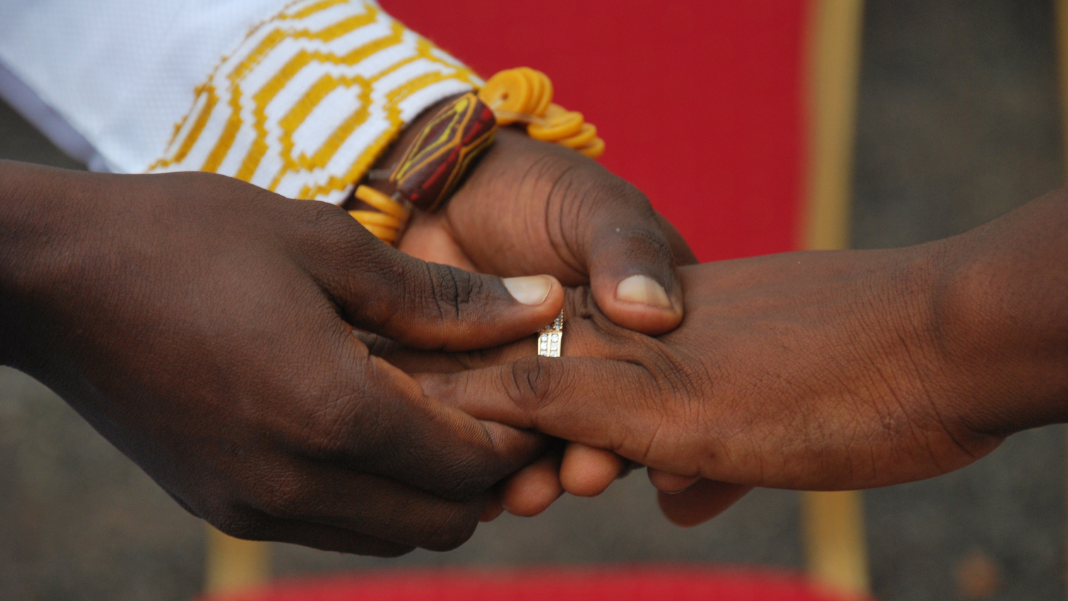
The registration of a customary marriage is vital for various reasons. By registration, the Republic of Ghana and its stakeholders become aware of the existence of the marriage and further prevent unnecessary disputes about the marriage’s existence or validity. Most importantly, the certificate issued to the spouses is significant to support visa applications at various High Commissions or Embassies.
As such, the Marriages Act, 1884-1985, CAP 127, an Act which consolidates the Customary Marriage and Divorce (Registration) Law (PNDCL 112), the Marriage of Mohammedans Ordinance, 1907 (CAP 129) and the Marriage Ordinance, 1884 (CAP 127) lays out the processes that govern the registration of the validly contracted customary marriage in Ghana.
Application for Registration
The following facts apply to the registration of customary marriages in Ghana.
- Once a marriage is validly contracted under customary law, either party or both parties may register at the district where the marriage was contracted for the registration of the marriage in the Registrar of Marriages.
- The application to the Registrar of the Marriage may be made at any time after the marriage by either party.
- A statutory declaration shall be attached as part of the registration process of the validly contracted customary marriage. The following facts shall be captured in the statutory declaration:
- The names of the parties to the marriage,
- The places of residence of the parties at the time of the marriage, and
- That the conditions essential to the validity of the marriage in accordance with the applicable customary law have been complied with.
Aside from the mandatory facts that the statutory declaration must disclose, the statutory declaration shall be supported by the following;
- The parents of the spouses, or
- The persons standing in place of the parents living at the time of the application for registration.
Registrar to Register Customary Marriage
The Registrar of the District where the marriage is sought to be registered shall, on receipt of an application for registration of a customary marriage, register the marriage and shall, by notice, notify the public of the registration of the marriage.
The notice contained in the application process shall be displayed on the public notice board at the office of the Registrar within twenty-eight days (28 days) of the application for registration.
Once publicly displayed, a person who knows of a cause why the Registrar should not register the marriage or objects to the validity of the marriage under the applicable customary law may at any time after the publication file grounds of the objection in the District Court in the district in which the marriage was registered. Copies of the grounds of the objection shall be served on the parties affected by the objection.
After consideration of the grounds filed, the District Court may consider any of the following:
- If the District Court is satisfied that legal grounds have not been established for the objection, the Court shall dismiss the objection; or
- If the District Court is satisfied that there are legal grounds for the objection, the Court shall order the Registrar to expunge the entries made in the register in respect of the registration of the marriage to which the objection was made.
The question that remains to be answered is whether such an order to expunge the entry automatically invalidates the marriage validly contracted. In the consideration or view of the author of this article, if the order from the District Court relates to the essential requirements for the contraction of the marriage, then the marriage itself becomes a nullity.
However, if this order of the District Court relates to the form of the statutory declaration accompanying the registration and does not impugn the essential validity of the customary marriage, then the customary marriage sought to be registered shall be considered valid. Hence, a reregistration process has to be commenced by the parties.
Conclusion
Customary marriage is validly accepted in Ghana. Thus, its registration does not necessarily confer legitimacy on the marriage, but rather the necessary customary rites performed validate the marriage. Though a party or parties to a marriage may register their customary marriage, they are not under any compulsion of law to do so.
Legal Notice
The contents of this publication, current at the date of publication set out above, are for reference purposes only. They do not constitute legal advice and should not be relied upon. Specific legal advice about your particular circumstances should always be sought separately before acting based on this publication.
© Legalstone Solicitors LLP
